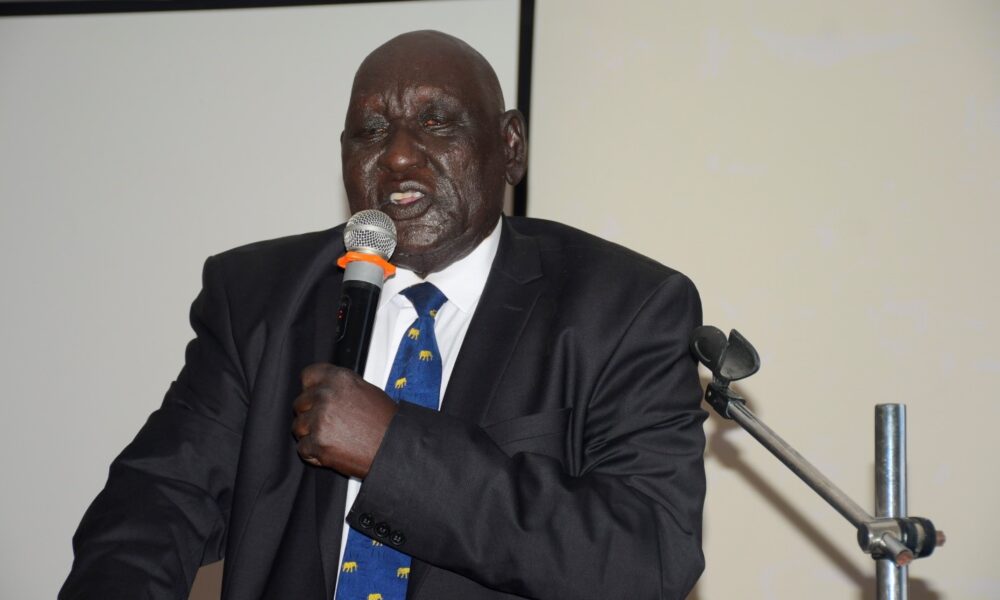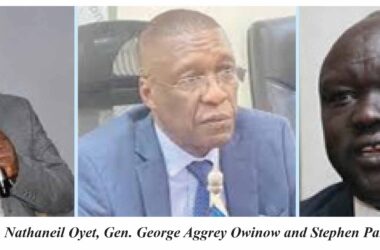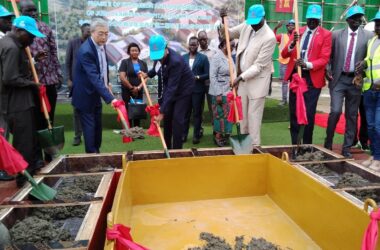By Bida Elly David
Director General for National and Foreign Languages Centre at the National Ministry of General Education and Instruction (MoGEI) stresses the need to incorporate national languages into school curricula as a means of promoting cultural heritage.
Speaking during UNESCO organized event on translation of local languages for future generations, over the weekend, Moses Mading underscored the need for parents to encourage the use of local languages both at home and in educational settings to enable children connect with their roots.
Mading also stated the vital role that religious institutions, particularly the church and the Bible, should play in promoting local languages as a primary mode of communication throughout the country.
He emphasized that the Ministry, specifically through the Department of Language Translation, is actively working on developing a curriculum that incorporates the teaching of all local languages in schools, enabling learners to adopt and embrace their linguistic heritage.
He, however, mentioned funding as one of the major challenges facing the institution, urging partners to extend their support.
He further noted that out of the 64 languages in South Sudan, there are only 38 official languages written and translated for official communication, saying the other 26 are yet to be worked on.
“These languages are what we have written and grouped accordingly; we have translated Dinka among all its communities as a language; the Bari language brings all Bari-speaking languages; Nuer among others,” he said.
Mading underlined that they are facing challenges with other communities that are still behind.
The education director urged communities to advocate for official translation of their language through the Ministry of General Education.
“Some communities don’t have their languages translated because they did not show up to us to help them; if they don’t come, we will not know,” he said.
Moreover, he also blamed parents for having failed to promote local languages in their homes.
“Language is very fragile when it comes to competition because some communities are not communicative,” he said.
Simon Gum, a language expert and translator, said language is a tool for communication and cultural interaction.
“It represents its people with a relationship of attitude and behaviour; through language, we communicate our attitude and culture and identify a person through a language,” he said.
The expert argued that most languages in South Sudan are oral and need to be written to preserve them for future generations.
“The 64 tribes or languages need to be developed and taught in schools, both high schools and primaries; the ministry needs to train teachers to teach national and foreign languages in South Sudan to promote communication,” he underscored.
He echoed that teaching local languages will enable learners to understand and communicate easily and learn the customs, traditions, and values of the people speaking the languages.
“There will also be cognitive benefit through improving thinking capacity to speak; it also helps in professional development, career development, and the ability to communicate at work,” he explained.
John Duku, a participant in the workshop, lauded UNESCO for initiating the conference for the people of South Sudan, saying the country has lost culture.
“A country without culture is also a challenge. We are now appealing to our government, our lawmakers, our youth, our women, and our children to really focus on this subject because we as South Sudanese have lost a lot of our culture during the struggle,” he said.
John accounted for historical wars, inter-communal conflicts, and political influence by tribal leaders as factors in the loss of cultures across the country.
“Some of us have been born in refugee camps where there is no proper access to culture and language. So, I think this particular event is very good for us to really come together and build it strongly,” he expressed.
He pleaded with the government for deeper deliberation and recommendations over the challenges facing language transmission in South Sudan.
“Our government should come up with policies that will really develop the languages and maintain our culture for our future generations,” he noted.




